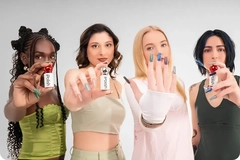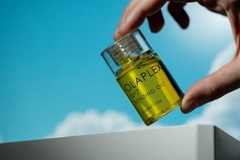EU Omnibus Act: Financial gains, consumer safety and CMRs spark debate

The European Commission (EC) has unveiled a simplification package of chemical regulations in the Omnibus Act, arguing it would save the industry hundreds of millions in annual costs. However, the move sparked concerns from green lawmakers who accuse the EC of siding with the industry and sacrificing consumer safety.
The changes apply to Classification, Labeling, and Packaging (CLP) and chemical regulations. They aim to simplify chemical labels for cosmetic products, which the Commission argues does not compromise on safety.
Meanwhile, an EU document, which leaked before the announcement, outlines plans for carcinogenic, mutagenic, or reprotoxic (CMR) substances. According to the document, CMR substances may be re-evaluated for use in cosmetics due to the current high burden of legislation on the industry.
Personal Care Insights speaks with Mark Smith, director of Natrue, about how the regulations will benefit the natural and organic cosmetics industry. The international non-profit organization welcomes the simplification package, saying it will benefit SMEs (small and medium enterprises).
“What the proposal does offer is greater certainty and predictability on the application of the law for safe ingredients. For example, for naturals, without the clarity proposed in the omnibus, current interactions between the CLP and the CPR (Cosmetics Products Regulation) would lead to an automatic ban of a natural extract based solely on the hazard classification of a constituent of that natural, such as a CMR,” Smith tells us.
“The proposal’s alignment of regulation with actual risk, under conditions of intended cosmetic use, is important to acknowledge — otherwise natural ingredients, even those allowed in food, which are safe for cosmetics, may be removed from the market as an unintended consequence of automatic bans.”
 Health protection is thrown overboard to increase the profits of the chemical industry, says Eickhout.Meanwhile, Bas Eickhout, president of The Greens and the European Free Alliance, released a statement after the announcement, accusing the simplification of benefiting the chemical industry.
Health protection is thrown overboard to increase the profits of the chemical industry, says Eickhout.Meanwhile, Bas Eickhout, president of The Greens and the European Free Alliance, released a statement after the announcement, accusing the simplification of benefiting the chemical industry.
“Health protection is thrown overboard to increase the profits of the chemical industry. With this new proposal to deregulate chemicals, the EC is undermining consumer transparency and putting people and their environment at risk,” says Eickhout.
“The weakening of legislation on cosmetics in particular is very worrying. By allowing the use of certain CMR substances in cosmetics and personal care products, which were banned until now, the EC is creating a big health hazard for European citizens. This is how you not only risk the health, but also erode the trust of Europeans.”
Eickhout argues that by reversing rules on the labelling of hazardous substances adopted last year, the EC is penalizing companies that have made the necessary investments to adapt to the new legislation, while rewarding those that have been lagging behind.
“Reducing burden, not protections”
The EC states that the simplifications strengthen the chemical sector’s competitiveness and modernization. It claims that the move addresses high energy costs, global competition, and weak demand, while promoting investment in sustainability and innovation.
Jessika Roswall, commissioner for Environment and Circular Economy at EC, says: “This is about reducing the administrative burden, not the level of protection. We know that Europeans care deeply about chemical safety, and we believe strong environmental standards can go hand in hand with strong business.”
The simplification package aims to further streamline and simplify EU chemicals legislation while protecting consumers and the environment from industrial harm.
“This includes simplifying hazardous chemical labelling rules, clarifying EU cosmetics regulations, and easing registration for EU fertilising products. These measures should save at least €363 million (US$421.48 million) annually for the industry,” states the Commission.
Protecting natural ingredients
 Natrue welcomes the EC proposal as a positive next step for natural and organic cosmetics.Meanwhile, Natrue welcomes the EC proposal as a positive next step for natural and organic cosmetics. Smith says it will clarify the treatment of complex natural substances (such as extracts), which is essential to safeguarding these products and ensuring consumer access.
Natrue welcomes the EC proposal as a positive next step for natural and organic cosmetics.Meanwhile, Natrue welcomes the EC proposal as a positive next step for natural and organic cosmetics. Smith says it will clarify the treatment of complex natural substances (such as extracts), which is essential to safeguarding these products and ensuring consumer access.
“Mandatory safety assessment is an integral part of the EU cosmetics regulatory framework,” says Smith. He explains that all cosmetics are safety assessed by law according to their risk. The risks are linked to the substance’s hazardous properties and the amount consumers are exposed to.
“The new Omnibus proposal keeps safety as the top priority of the EU’s regulatory framework for cosmetics without compromising on this fundamental principle,” he adds.
Natrue recently joined a broad coalition of industry associations, calling on EU policymakers to increase safety regulations. The statement, signed by representatives from the fragrance, cosmetics, and essential oils value chains, stressed a shared commitment to consumer safety.
“To be effective, addressing current challenges is essential. The natural cosmetics sector is largely made up of SMEs. To foster bioeconomic innovation and support competitiveness, Natrue echoes the call for proportionate, workable solutions toward smarter regulation protecting people and progress,” says Smith.
He argues that the proposal introduces more realistic reformulation timelines and helps reduce compliance burdens for SMEs. “It is a welcome first step to supporting the sector and encouraging further investment in sustainable innovation.”
Continuing controversies
Certain natural ingredients may also be CMR. For example, tea tree oil has shown potential toxicity to humans when swallowed or inhaled.
 Pointing to the routes of exposure, the EC said that if a cosmetic product contains a CMR substance, it doesn’t necessarily make it unsafe.In the leaked document from June, obtained by Politico, the EC wrote: “In 2025, the Committee for Risk Assessment adopted opinions for 110 substances, including several for which CMR 1B classification was proposed. Many of these substances are widely used in cosmetic products such as piperonal in fragrances, p-cymene — a component found in more than 360 essential oils, and tea tree oil, which is used in numerous cosmetic formulations.”
Pointing to the routes of exposure, the EC said that if a cosmetic product contains a CMR substance, it doesn’t necessarily make it unsafe.In the leaked document from June, obtained by Politico, the EC wrote: “In 2025, the Committee for Risk Assessment adopted opinions for 110 substances, including several for which CMR 1B classification was proposed. Many of these substances are widely used in cosmetic products such as piperonal in fragrances, p-cymene — a component found in more than 360 essential oils, and tea tree oil, which is used in numerous cosmetic formulations.”
“The recently introduced grouping approach [categorizing substances based on hazard profiles] will further accelerate the pace at which substances are subject to harmonised classification, including CMRs, intensifying the regulatory impact with significant negative effects on the cosmetics sector.”
In the draft, the EC argued that chemicals in food and cosmetics should be distinguished. Pointing to the routes of exposure, the EC said that if a cosmetic product contains a CMR substance, it doesn’t necessarily make it unsafe.
The day before announcing the simplification package, the EC publicly announced that the Commission “intends to withdraw the Green Claims proposal.” The Green Claims Directive, introduced by the EC in March 2023, seeks to crack down on greenwashing by requiring companies to provide evidence for voluntary environmental claims such as “climate neutral” or “eco-friendly.”
However, Personal Care Insights recently reported on how these claims can be a form of greenwashing. Industry players told us about the sustainability threat of natural cosmetics, as they require high amounts of resources and can leave a significant environmental footprint if not handled correctly. The experts also shared that labels claiming to be eco-friendly when the product is not sustainable throughout the supply chain create a fine line to greenwashing.













